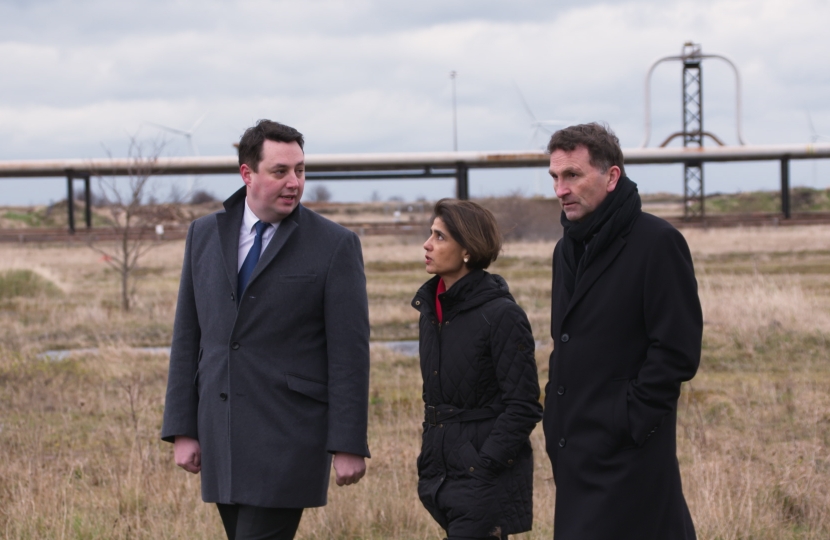
Tees Valley Mayor Ben Houchen has welcomed the announcement in the budget that Teesside will receive a share of £800m for a clean energy project that is set to bring thousands of jobs to the region, while also protecting thousands more in the industries that are vital to our economy.
Net Zero Teesside will see the creation of the UK’s first decarbonised industrial cluster using carbon capture, utilisation and storage, adding half a billion pounds into the regional economy and boost the wider UK economy by £3.2billion.
The project has the potential to capture six million tonnes of CO2 emissions annually – the equivalent annual energy use of two million UK homes – and safely store it under the North Sea.
The project, which is expected to be up and running in 2025, would be the first major development to be based on the South Tees Development Corporation site.
Mayor Houchen said: “I am delighted that Rishi has announced Teesside will be one of the locations to receive a share of £800m for carbon capture and storage. It shows not only that the Government is taking seriously the clean jobs of the future, but they are realising that Teesside is the best place for them.
“This world-leading industrial-scale decarbonisation project will safeguard and create thousands of good quality well paid jobs for local people. It will act as a beacon for new technologies and further investment as other companies are attracted to our local area, while helping the UK achieve its clean energy potential.
“We have been working extremely hard to launch this landmark project which represents the next step in our ambitions for Teesside, Darlington and Hartlepool to become a pioneer in clean energy. It is fantastic the Government have thrown their weight behind this project, proving my region can lead the way in creating the industrial jobs we want; clean, green, skilled and well-paid.”
Net Zero Teesside will play a significant role in helping the UK reach its net zero 2050 greenhouse gas emissions target. In partnership with local and global industry, the project aims to fully decarbonise a cluster of carbon-intensive businesses by as early as 2030.
The transportation and storage infrastructure will also encourage new investment in the region from industries that wish to store or use CO2.




